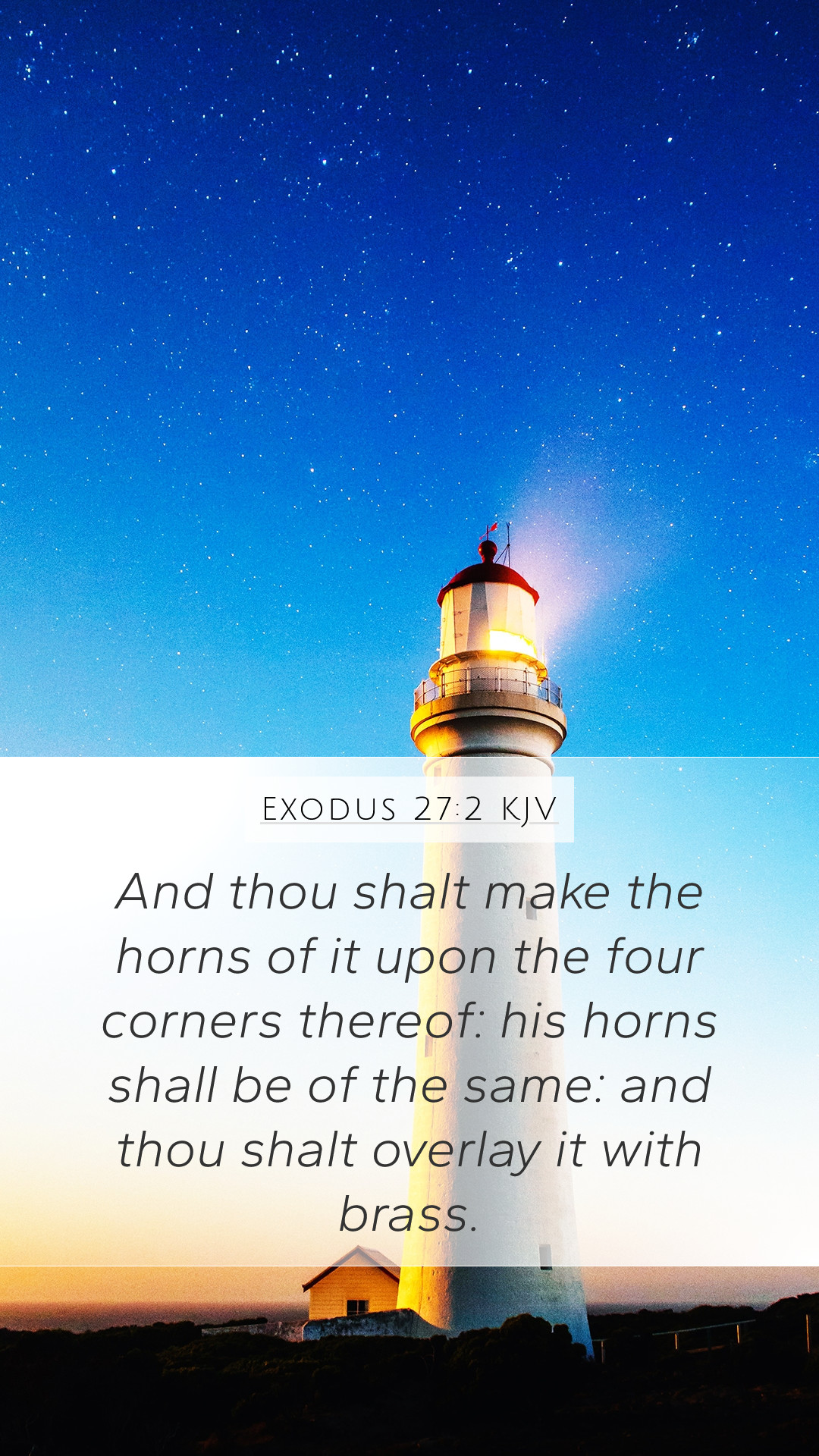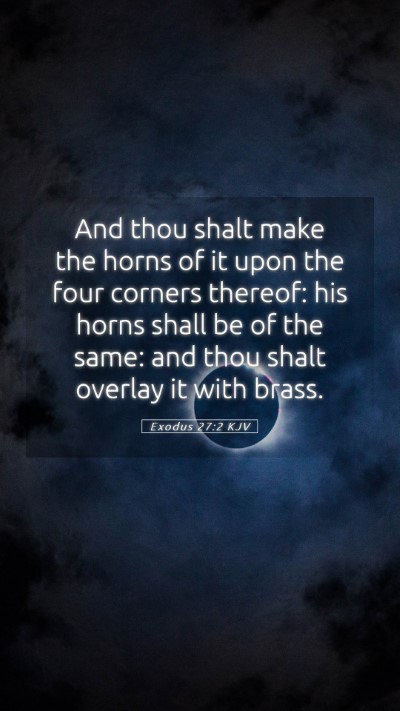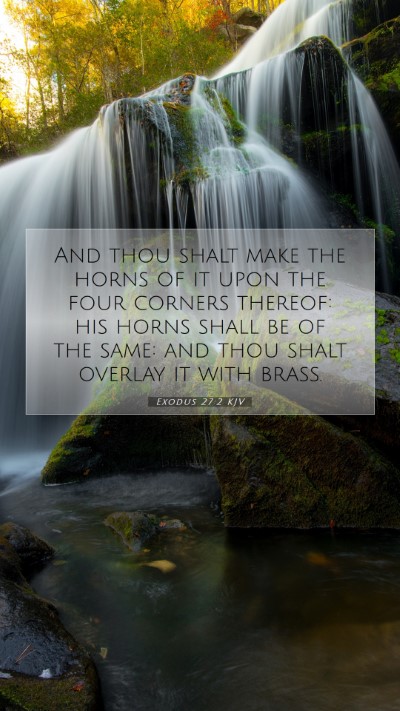Exodus 27:2 - Bible Verse Meaning and Commentary
Verse: Exodus 27:2 - "And thou shalt make the horns of it upon the four corners thereof: his horns shall be of the same, and thou shalt overlay it with brass."
This verse provides detailed instructions for the construction of the altar in the tabernacle, highlighting both its function and symbolic significance within the Israelite religious practices.
Summary of Interpretations
This passage is pivotal in understanding the nature of worship within the context of the Old Testament. The altar, where sacrifices were made, represents a crucial element of Israel's covenantal relationship with God. Below is a synthesis of insights drawn from public domain commentaries:
- Matthew Henry Commentary:
Matthew Henry emphasizes the importance of the altar as a place of atonement and reconciliation with God. He notes that the horns of the altar represent strength and the power of prayer, symbolizing that God's mercy is strong and accessible.
- Albert Barnes Commentary:
Barnes explains that the use of brass signifies durability and resilience, qualities needed for the altar that serves as the primary site for Israel's sacrifices. He reflects on how the ritualistic shedding of blood underscored the gravity of sin in approaching a Holy God.
- Adam Clarke Commentary:
Clarke elaborates on the dimensions and specifics of the altar's construction, linking it with the broader theme of God's meticulous attention to detail in worship practices. He also posits that the horns symbolize both protection and refuge, reminiscent of how the altar served as a sanctuary for those seeking mercy.
Theological Significance
The horns of the altar carry a profound theological function: they not only anchor the Israelite's understanding of sacrificial worship but also point to God’s forgiveness and provision. Rituals performed at the altar were essential for maintaining a right relationship with God, serving both as acts of obedience and means of grace.
Practical Applications
Understanding Exodus 27:2 offers deep insights for modern readers. Here are several applications:
- Recognizing the importance of sacrifice and atonement in one's spiritual life.
- Reflecting on personal worship practices and the symbols utilized in them.
- Understanding that God desires detailed and intentional worship, prompting believers to consider how they approach their relationship with Him.
- Encouragement to seek refuge and strength in God's mercy, akin to the symbolism of the altar's horns.
Cross References
Exodus 27:2 relates to several other scriptures, enriching the understanding of its themes:
- Exodus 30:10 - The Day of Atonement and further instructions on the use of the altar.
- Leviticus 4:7 - The sacrificial system and its requirements for atonement.
- Hebrews 9:14 - The New Testament reflection on sacrifices and the eternal significance of Christ’s ultimate sacrifice.
Conclusion
Exodus 27:2 is a significant scripture that combines intricate construction details of the altar with deeper theological implications about sacrifice, mercy, and worship. By engaging with the various commentaries, believers can enhance their Bible verse understanding, deepen their Bible study insights, and apply these lessons in their daily lives.
Incorporating these insights fosters a richer Bible study experience, providing contextual layers that inform both personal and communal worship practices. This passage serves as a meaningful connector between the Old Testament sacrificial system and the New Testament revelations of grace through Christ.
Further Study Suggestions
For those interested in a more expansive study on this topic, consider exploring:
- Online Bible study resources that focus on the tabernacle and its significance in the Old Testament.
- Bible study lessons addressing the themes of sacrifice and atonement.
- Historical context of Bible verses related to worship in ancient Israel.


